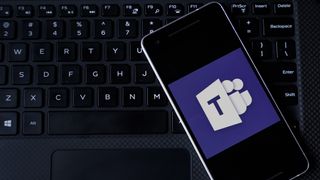How the UC market is revolutionising attitudes to working
The continued significance of UC lies in its ability to utilise the latest technology trends, says John Brett

Unified Communications (UC) began with a pioneering vision for a platform which integrated phone, video and email systems, allowing workers to interact effectively from any location, in real-time.
In 2018, it's clear that UC has played an integral part in the evolution of the modern workplace, supporting human productivity through the use of technology. It therefore seems an appropriate point to consider how business communication tools have progressed, and more importantly what the next era of UC holds for businesses.
The way we live and work has seen vast changes in recent years, and the ability to stay connected has become indispensable in our global society. A 2017 report by Deloitte indicated that over 50% of UK workers surveyed used their smartphones for at least one business-related activity. Furthermore, 19% of those individuals confessed to using their smartphones for business purposes outside of work.
The statistics reflect how reliant the majority of UK employees are on their personal devices, and the extent to which mobile technology has progressed. With this in mind, UC platforms are increasingly available as smartphone-friendly apps which support the dynamic lifestyles of modern workers.
The continued significance of UC lies in its ability to utilise the latest technology trends. Breakthroughs in speech recognition, cloud software and Artificial Intelligence (AI) have all transformed collaboration tools, making it possible for employees to communicate not only across different rooms, but even countries and time zones.
The March Enterprise Connect 2018 Conference and Expo in Florida outlined the upcoming trends in UC and enterprise collaborations, with some of the world's most influential global tech companies from Facebook to Google debuting their professional collaboration platforms.
Amazon Web Services delivered a presentation on its Alexa for Business Service which employs the Amazon chatbot as a personal assistant for workers. It enrols users who can then voice-manage calendars, start meetings and program specific skills into the device. In this way, employees' can fulfil tasks more efficiently and streamline their workloads, something which benefits individual wellbeing as much as business performance.
Channel Pro Newsletter
Stay up to date with the latest Channel industry news and analysis with our twice-weekly newsletter
UC remains a lucrative sector amongst the technology giants who recognise a need for these products with end-users. In a society more attuned to mental health in the workplace, enterprise collaboration is essential to fully support and ease the strain on individual employees.
The capabilities of UC now exceed that of simple messaging via emailing and calling systems: these tools enhance the working process itself. The introduction of 'intelligent communications' marks a new phase in the journey of collaborative working. The launch of Microsoft Teams last September embodied the Intelligent Communications strategy: a set of cohesive tools which enrich the entire working cycle. Teams integrates Skype for Business and allows users to instant message, video chat, share documents and files, join meetings and plan agendas, all from one hub.
In March, Teams announced its upcoming features such as cloud recording, mobile meeting sharing and Cortana voice interactions. Such advancements are made possible by the developments in AI technologies, which are seeing an increased uptake in enterprise services.
Unified Communications has certainly realised its initial goal for a more dynamic and productive workforce. Furthermore, it has demonstrated an ability to grow and adapt to the needs of 21st century, mobile workers who require on-demand access to business databases. In a society where communication is unhindered by physical or geographical borders, UC facilitates truly modern collaboration and proficiency.
Expansion is set to be the keyword for the future of UC with the big technology firms augmenting collaboration tools with cutting-edge technology. Ultimately, enterprises which integrate intelligent tools into everyday business processes can better support employees and drive their business performance to new heights.
John Brett is technical operations manager at Nexus Open Systems




